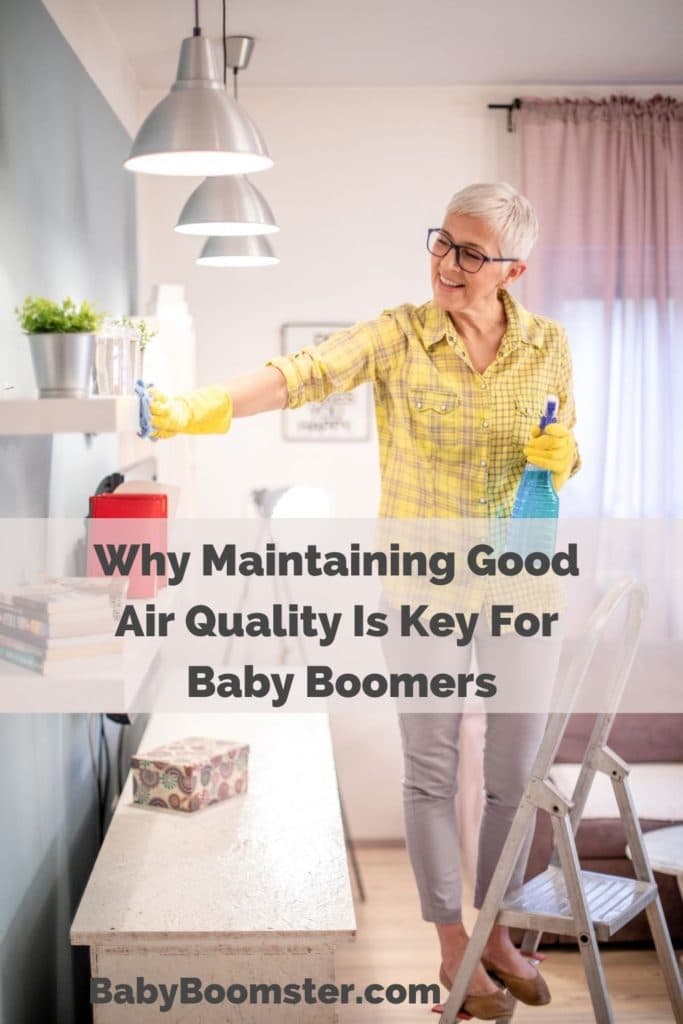The Environmental Protection Agency (EPA) warns that in many American homes, the indoor air quality is two to five times worse than it is outside – which is a worry to home dwellers, especially those who spend the most time indoors (including retirees and babies).
A study published in the Journal of Thoracic Disease found that seniors are particularly susceptible to the health effects of poor air quality, owing mainly to comorbidities (i.e. chronic diseases). How can you lower your health risks and improve your quality of life by taking proactive steps to improve the indoor air quality in your home?
What Conditions Are Linked To Poor Air Quality?
Some of the diseases and conditions experienced as we get older (resulting from poor air quality) include chronic obstructive pulmonary disease (COPD), chronic bronchitis, asthma, and emphysema. Chronic exposure to ambient air pollution, meanwhile, also raises the risk of poor lung function. Research indicates that seniors are more vulnerable to particles in the air than other pollutants.
Unfortunately, much of the pollution faced indoors comprises particulate matter. This is, essentially, a mixture of solid and liquid particles found in the air. It includes dust, soot, smoke, dirt, dander, acids, metals, soil, organic chemicals, and more – many of which are too small to be visible to the naked eye.
You may want to consider plugging in a portable air purifier that detoxifies the air and kills germs.
What Items At Home Can Cause Indoor Air Pollution?
Common causes of indoor pollution are pressed wood furniture, carpets, soft furnishings containing flame retardants/formaldehyde, tobacco smoke, space heaters, fireplaces, dryers, and fuel-burning combustion appliances. Biological matter such as pollen, animal dander, and mold can also cause problems.
This is particularly true in the case of toxic mold, which can cause a wide array of symptoms – including headaches, fatigue, and nausea. Creating a clean indoor space may involve replacing furniture, finding alternative ways to stay warm, and cleaning interiors more assiduously.
Eliminating Mold At Home
Because mold can wrest from air quality, it is important to keep relative humidity levels indoors at recommended levels (between 30% and 50%). If you live in a humid area or you find mold in areas like basements and bathrooms, use a hygrometer to ensure your levels are within the safe zone. If humidity levels are high, consider a dehumidifier to dry the air a little.
Keep air conditioning units mold-free by running them on a low setting when you are away since an idle unit can promote mold growth. Clean the unit regularly, removing dust, cleaning the filter as recommended, and giving it a deeper clean every few weeks. This will involve cleaning the interior in areas like the front grill. If mold has seeped into deeper parts of your unit (like the ducts), then the entire unit may need replacement.
Embracing Natural Cleaning Techniques
Harsh cleaning products such as bleach and ammonia can also destroy the quality of the air in your home. Try to think of more natural ways to address common problems – for instance, by using DIY cleaners comprising simple ingredients like white vinegar, water, lemon rind, and rosemary sprigs.
For kitchen grease, warm water, and baking soda solution can work wonders. For sinks and tubs, lemon and borax powder can leave surfaces sparkling clean. Additionally, you can use a powerful steam vacuum for floors, curtains, sofas, and other parts of the home that can have a build-up of dust and bacteria.
If you are over the age of 60, then taking particular care of your indoor quality is key, since you could be more vulnerable to the health effects of poor air quality. Improving your air quality is as much a matter of creating optimal humidity levels as it is about making necessary replacements for furniture containing toxins like formaldehyde.
Finally, making a switch to old-fashioned yet effective cleaning methods and turning to steam vacuuming can leave your home sparkling clean, while maintaining top air purity standards.
What products do you use to clean your home? Does bad air quality affect you in your environment? Please leave a comment below.





Leave a comment and tell us what you think